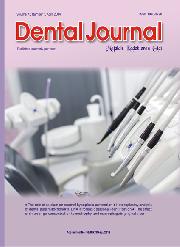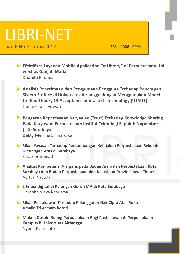Dental Journal (Majalah Kedokteran Gigi)
ISSN 1978-3728
Vol. 47 / No. 1 / Published : 2014-03
Order : 2, and page :7 - 12
Related with : Scholar Yahoo! Bing
Original Article :
Role of hsp60, cd-8 and ifn-γ on the imunopatobiogenesis of periapical granuloma on dental caries
Author :
- Risya Cilmiaty*1
- Mandojo Rukmo *2
- Departemen Gigi dan Mulut, Fakultas Kedokteran, Universitas Sebelas Maret, Surakarta-Indonesia
- Dosen Fakultas Kedokteran Gigi
Abstract :
Background: The incidence of dental caries with periapical granulomas in Indonesia is quite high, however the mechanism of the formation of dental caries in the periapical granuloma caused by a bacterial infection in immunopathobiogenesis can not be explained completely. The existence of this explanation is necessary in order to be used as a basis for the development of diagnostic, preventive and therapeutic measures. Purpose: To explain immunopathobiogenesis periapical granuloma on dental caries, through the role of Hsp60 immunity components, CD-8 and IFN-γ. Methods: Observational analytic cross sectional study, in patients with dental caries as many as 36 people, consisting of 18 dental caries with periapical granulomas and 18 people who suffer from dental caries without periapical granulomas (non granuloma). The observed variables are the components of immunity Hsp60, CD-8 and IFN-γ, measurements were performed using immunohistochemical methods of periapical tissue. Results: There were significant differences between the groups with non granuloma granuloma (p<0.05), which the mean components of HSP60 immunity, CD-8 and IFN-γ groups granuloma higher compared with non granulomas. Conclusion: On the immunopathobiogenesis mechanism of periapical granuloma in dental caries, the bacteria induced histiocyte development into angry macrophage and APC, so many that have the effect of Hsp60 resulted in apoptotic lymphocytes triggers CD-4 (Th2 cells), causing the balance friction toward CD-8 lymphocytes (Th1 cells). The friction is reflected by the increase of IFN- γ producing cells. IFN-γ producing cells will be increased by the induction of IL-12 produced by macrophages, triggering angry granuloma formation.
Keyword :
Dental caries, immunopathobiogenesis, periapical granuloma ,
References :
Graves D,(2008) Cytokines that promote periodontal tissue destruction - : J Periodontol
Archive Article
| Cover Media | Content |
|---|---|
 Volume : 47 / No. : 1 / Pub. : 2014-03 |
|












